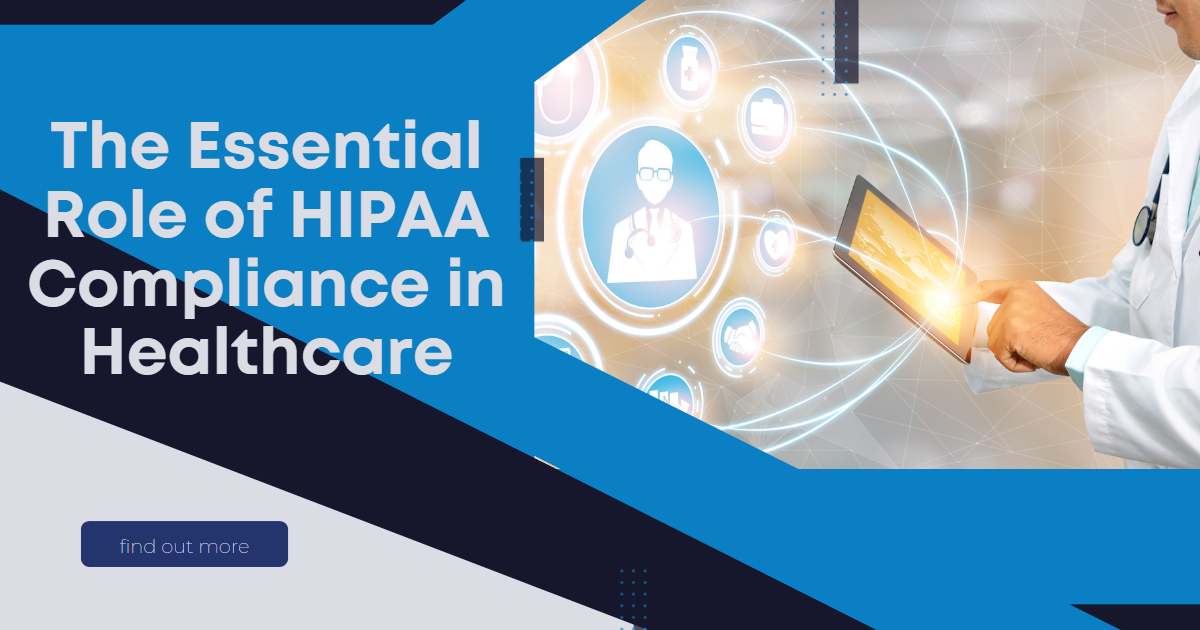The Origins of HIPAA
The Health Insurance Portability and Accountability Act (HIPAA) was passed by Congress in 1996 to protect patients’ privacy and security in the digital age. By law, any organization that handles protected health information (PHI) must comply with HIPAA regulations. This includes hospitals, clinics, nursing homes, pharmacies, insurance companies, and other entities that handle patient data. Organizations are required to take appropriate measures to protect PHI from unauthorized access or disclosure. This includes physical security measures as well as technical safeguards such as encryption technology and strong authentication protocols.
HIPPA was passed in response to increased concerns about patient privacy and data security. HIPAA provided new standards for the protection of Protected Health Information (PHI). It also established federal regulations aimed at ensuring that insurance companies offered coverage to individuals with pre-existing conditions.
Before HIPAA, there were few laws protecting patient privacy, so healthcare providers and insurers could easily access or share a patient’s medical information without their consent or knowledge. Additionally, many people did not have access to health care due to pre-existing conditions or other factors that made them ineligible for insurance coverage.
The passage of HIPAA allowed for greater control over personal health information and offered greater protection for those who needed access to health care but could not get it due to pre-existing conditions. Through its various provisions, it gave patients more control over their medical information and ensured better data security measures were taken by healthcare providers and insurers.
Understanding HIPAA Compliance
Under HIPAA regulations, PHI must be kept secure at all times. This means that businesses must take steps to protect customer data from unauthorized access or disclosure. This includes using secure encryption methods when transmitting sensitive information electronically and properly disposing of paper records that contain PHI. Businesses must also ensure that their employees are well-trained on how to handle PHI to prevent any accidental breaches.
HIPAA compliance also requires organizations to provide patients access to their personal medical records. Additionally, organizations must keep accurate records on who has accessed patient data and when they accessed it. This helps ensure that only authorized personnel can view sensitive information. Finally, organizations must properly dispose of any patient data they no longer need or use—this prevents unauthorized individuals from gaining access to PHI through discarded documents or electronic devices.
HIPAA is regulated by the United States Department of Health and Human Services (HHS) which created the HIPAA Privacy Rule. This rule gives individuals control over how their protected health information can be used, disclosed, or accessed by healthcare providers, organizations, or companies. The HHS also created the HIPAA Security Rule which sets standards for protecting electronic Protected Health Information (ePHI). These requirements cover technical safeguards such as audit controls and data encryption, as well as physical safeguards like access restriction and facility security measures.
Why is HIPAA Compliance Important?
HIPAA compliance is essential for businesses handling sensitive health information because it ensures that customer data remains safe at all times. It also helps build trust with customers by reassuring them that their personal health information will remain confidential. Finally, businesses must comply with HIPAA regulations to avoid costly penalties from the Federal government for non-compliance.
Organizations that fail to comply with HIPAA regulations can face serious penalties including civil fines of up to $50K per violation (with an annual maximum of $1.5 million) as well as criminal penalties of up to $250K per violation (with an annual maximum of $1 million). These hefty fines help ensure that organizations take patient privacy seriously and are incentivized to implement effective controls over PHI access and use.
Adhering to HIPAA regulations is an important part of running a successful business in today’s digital landscape. Not only does it help protect customer data from potential breaches or misuse, but it also helps build trust with customers who have entrusted you with their personal health information. Taking the time to understand what HIPAA compliance entails—and following those guidelines—can help your business stay compliant while avoiding costly fines from the Federal government for non-compliance. Being familiar with these regulations and implementing necessary measures can help ensure that you provide a safe experience for your customers while protecting their privacy.
There are a few steps a company can take to become more HIPAA compliant:
- Develop policies and procedures outlining how Protected Health Information (PHI) is handled.
- Create physical safeguards that limit access to PHI, such as locking filing cabinets and restricting access to computer systems.
- Implement technical safeguards that provide security and encryption protocols for PHI stored on computers and other electronic devices.
- Train employees on how to handle PHI in accordance with the organization’s policies and procedures.
- Review existing policies and procedures regularly to ensure they remain in compliance with HIPAA regulations.
HIPAA compliance plays an essential role in safeguarding the privacy and security of patient data in the healthcare industry. Not only does it help protect patients from unauthorized access or disclosure of their medical records, but it also helps ensure that organizations remain compliant with industry standards so they can avoid costly fines due to non-compliance violations. By following best practices for HIPAA compliance, healthcare providers can maintain trust between themselves and their patients while preserving their reputation as safe providers of quality care services.
Keeping your business HIPAA compliant is made easier with ERGOS’ compliance department. Our compliance department will identify items that need to be addressed with an assessment. We will then identify what can be handled monthly and what would need to be done through projects that can be planned throughout the year for budgetary needs. Contact us today to schedule a consultation.

